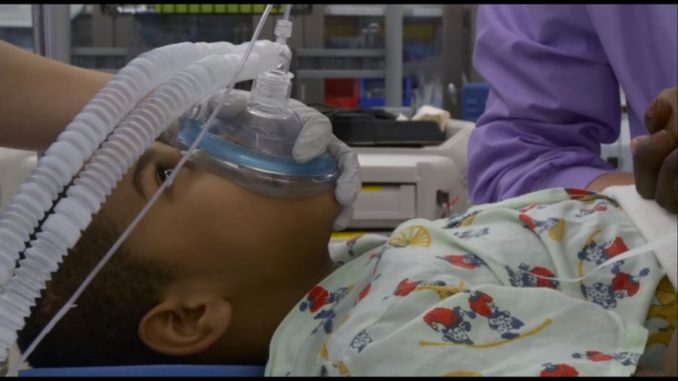
Review Fix chats with “The Sweetest Land’ director and writer Jeffrey Teitler, who lets us know what makes the project a special one and how the Film Festival impacted its goas and future.
Review Fix: What is the inspiration for your film?
Jeffrey Teitler: Living in Connecticut, few would deny the devastating toll that violence leaves.  And yet, in Urban America, that indescribable pain and trauma, occurs every night of the year. However, too often those headlines are ignored and/or accepted.  There are no large donations provided or substantial services offered to urban victims of violence….And yet, when the gunshots sound and the need for care is great, there are a rare few who deeply engage in the most impressive ways.  From the system of
Review Fix: What were the most challenging part of production?
Teitler: I filmed a young man named, Luis Torres, who was shot in the spine. He was in his early twenties and was told by the trauma surgeon that he would likely not walk again. Holding the camera that night as the events unfolded was horrible. I didn’t want him to feel exploited and the weight of what he and his mother were dealing with made filming a ridiculous notion.  The next day, I would be at an expensive violence prevention award ceremony where congratulations and accolades were unending.  It was that weight of Luis’ story mixed with an entire system that failed to change his outcome in any way, which was challenging and deeply engaging. In fact, it propelled a long term investigation questioning why?  Why a funded safety net and organizations that intend to do good, do not spend wisely, lack
Review Fix: Describe your set, the tone. Who is the unsung hero of the production? What did you learn about yourself?
Teitler: The film is tense. It can erupt in violence but it is also ultimately sweet. It humanizes how preventable violence is and how meaningful life can be.  There are
Review Fix: What did I learn about myself? Â
Teitler: Difficult question. I often tell my film students to tell stories within their areas of expertise. Use what they know to reveal new information.  Yet in my own practice, I strayed far from that and the cost was substantial. Within the trenches of urban America, with every story I captured, the responsibility to do something with it was enormous. I struggled artistically, ethically and also with the final decision to focus on prevention (a topic which is not necessarily commercial) particularly when similar films focus on the gun, conditions or violence  But it was also the right thing to do and has gained the
Review Fix: How do you want the film to be remembered and what is your ultimate goal for it?
Teitler: Everywhere we’ve tested THE SWEETEST LAND, we’ve heard enraged and similar conversations: too little coordination, collaboration and services for youth at-risk of violence/families/victims…. Yet in many of those communities, millions in funding exists and can be used in more effective ways….My goal for the film is to focus that prevention conversation and add a sense of accountability and energy, where the film presents.
Review Fix: Who is your targeted audience?
Teitler: Urban hospitals, non-profits working in youth services, schools of public health, schools of social work, government policy think tanks, violence prevention organizations, community foundations
Review Fix: Describe your festival experience, what did you learn about your film, about festivals?
Teitler: We’ve just started the process. But I have to say, QWFF was fantastic and proactive. It is also very nice to see the follow up after the festival.
Review Fix: What’s next?Â
Teitler: Heather Lindsay’s fight with triple negative breast cancer became a national and international story in her last triumphant gesture. During her hospital wedding with Dave Mosher, it was forced air through her CPAP, which kept her


Leave a Reply